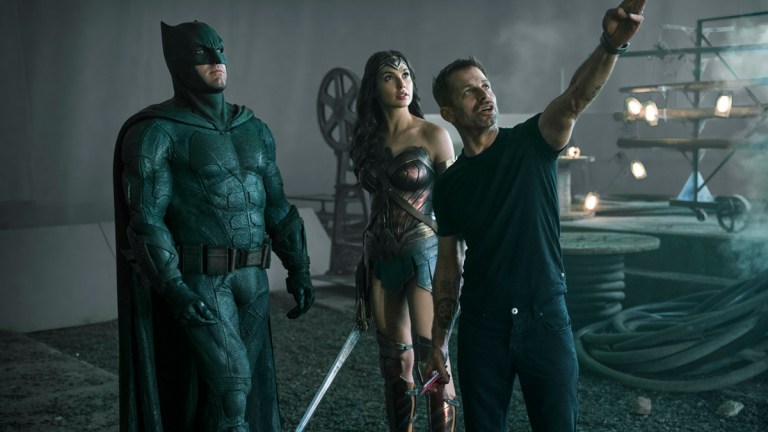New Justice League Report Is a Bad Look for Zack Snyder
An investigation from Rolling Stone has found Zack Snyder to be far more culpable in the Justice League Snyder Cut harassment than previously believed.

For some, the phrase “Release the Snyder Cut” has been a rallying cry for artistic integrity. They use the phrase to push back against mega-corporation Warner Brothers, demanding that director Zack Snyder be given the opportunity to complete his vision for DC Comics heroes the Justice League, which he began with Man of Steel in 2012. For them, the phrase rejects the 2017 theatrical release of Justice League, which was completed by Joss Whedon after a family tragedy pulled Snyder away from the production.
But for others, “Release the Snyder Cut” is a threat, a demand to silence all criticisms of Snyder’s work and a punishment for perceived threats to the director’s films. Victims of online harassment campaigns have ranged from Geoff Johns and Jon Berg, who produced the theatrical cut of Justice League, to director Adam Wingard, whose movie Godzilla vs. Kong appeared on HBO Max two weeks after Zack Snyder’s Justice League and thus drew away attention, to countless critics and journalists who gave Snyder movies bad reviews.
As vicious as these attacks could sometimes be, Snyder himself managed to stand above the fray, portraying himself as a largely decent guy, despite his rabid fans. But a report from Rolling Stone alleges that Snyder was far more complicit in harassment campaigns than previously believed. Drawing from a number of sources, most of whom go unnamed, and internal investigations by Warner Brothers, the report finds the “Release the Snyder Cut” movement to be the result of Twitter bots, marketing firms, and Snyder himself, as much as it was an organic outcry from a large group of fans.
The report traces Snyder’s involvement with Twitter campaigns back to 2016 , when the director allegedly hired an online marketing firm to counter the poor reception of Batman v Superman: Dawn of Justice. A month after the Whedon-directed Justice League released to poor reviews and low box office receipts, the website forsnydercut.com launched, and became a hub for the first and most influential voices in the Snyder Cut movement. Rolling Stone discovered that the site was founded by MyAdGency, a marketing firm similar to the one Snyder allegedly hired in 2016.
Even though Snyder denies any involvement with digital marketing firms, he has shown himself to be more than willing to activate his fans via social media. In 2019, Snyder posted images of film cannisters labelled “JL Director’s Cut,” accompanied by the following text: “Is it real? Does it exist? Of course it does.” When the image led some fans to harass journalists who doubted the existence of a director’s cut, Snyder did nothing to stymie attacks, nor did he disclose the fact that the director’s cut came from work he did on files stolen from Warner Bros.
At best, Snyder’s feelings on harassment seem best articulated by his response to Wingard’s request that he ask fans to stop review-bombing Godzilla vs. Kong. “I do not control my fans,” Snyder said. “They have their own will and their own opinions; you really give me too much credit.” But Rolling Stone also claims that Snyder wilfully sicced his fans on Johns and Berg when the producers refused to remove their names from Zack Snyder’s Justice League. According to one source, Snyder told an executive, “Now, I will destroy them on social media.” Some sources in the article indicate that Snyder enlisted Cyborg actor Ray Fisher to make allegations of racism and abuse against the duo.
Again, the Rolling Stone article makes it clear that Snyder denies these allegations. However, given his explicit dismissal of attacks done in his name and his embrace of the movement’s results, it’s clear that the director does not take the harassment particularly seriously. Had he been as clearly active decrying the abuse playing out online as he was when stoking his followers, it would be easier to doubt the new allegations against him.
